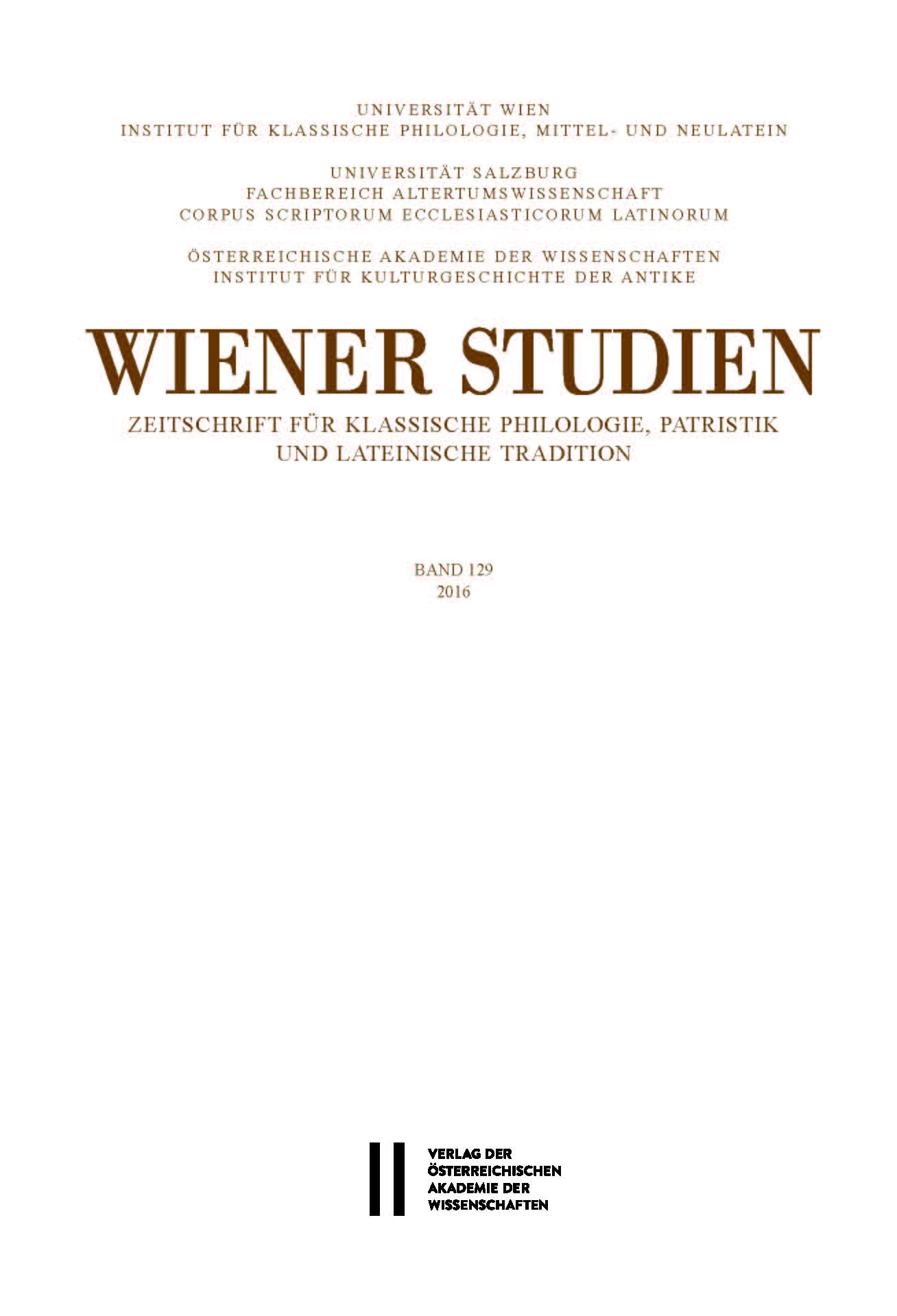
Wiener Studien 129/2016, pp. 257-280, 2016/08/05
Zeitschrift für Klassische Philologie, Patristik und lateinische Tradition

Scholars generally assume that Vergil portrays Tityrus as a literal slave in Eclogue 1, but I argue that it is preferable to interpret Tityrus as a metaphorical slave. libertas (27) may refer to the liberty that is won when Tityrus leaves his home and thereby escapes the metaphorical slavery of his mistress, Galatea, as well as to the liberty that is won when Tityrus is able to keep his property, in the context of land confiscations, and thereby have the liberty to enjoy otia (6). libertas (27), then, is a capacious term, but it need not have anything to do with literal slavery. The image of male slavery to a mistress, the servitium amoris trope, is particularly associated with the Augustan elegists, but the modern reader may choose to assume that Vergil introduces the trope in Eclogue 1, via an allusion to Theocritus’ Idyll 14.